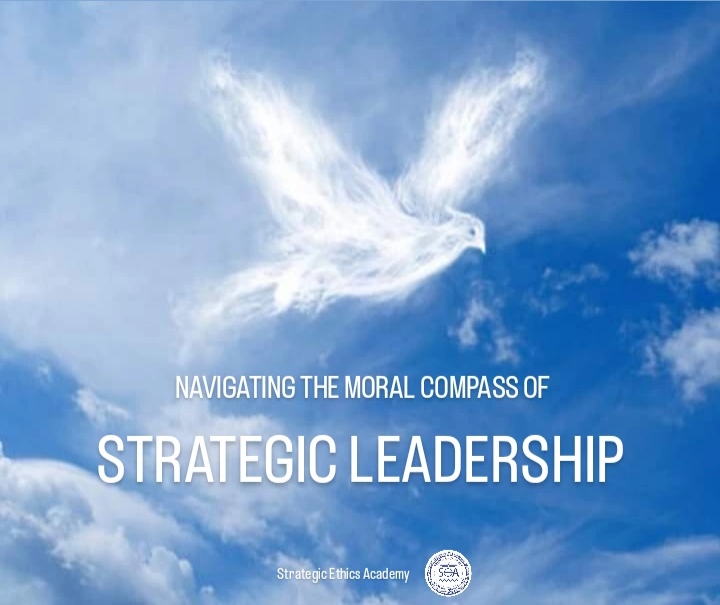

The role of strategic leadership transcends mere tactical prowess and logistical cognition, that extend to the ethical dimensions that underpin every decision, every action, and every mission. Strategic leadership in the military is not just about achieving objectives; but about navigating the moral compass that guides the armed forces towards honorable conduct, even in the heat of battle. Strategic leaders play a pivotal role in setting the ethical tone for the entire force through clear communication and unwavering commitment to ethical principles, creating a culture that values integrity, respect, and adherence to the rule of humanity prior to the rule of law.
The integration of ethics within military operations requires a delicate balance, where the pursuit of national security goals does not compromise fundamental values. Leaders must constantly evaluate the ethical implications of their decisions, ensuring that the means employed are as justifiable as the ends sought; and must be adept at evaluating the moral dimensions of their choices, weighing the potential consequences on both military objectives and the broader human context. To this fact, ethical considerations in the crucible of conflict demand a seat at the decision-making table, from targeting decisions, to the treatment of prisoners of war and all other dimensions, through which leaders must bolster the legitimacy of military actions, reinforcing the moral authority that underpins their missions.
Ethics in the military is not merely a theoretical construct; Strategic leaders understand that by demonstrating a commitment to ethical behavior, they are building trust and the bedrock of the public and the international legitimacy by which the community hinges on the ethical conduct of their forces. Fostering the ethical competence within the military requires not only enforcing codes of conduct but also instilling a deep understanding of the ethical foundations that guide military actions. Through education and training, leaders cultivate a sense of moral responsibility among their subordinates, empowering them to make ethical decisions independently.
To this end, strategic leadership role in shaping the ethical dimensions of military operations can be summarized in the following aspects: 1) Establishing and disseminating clear ethical guidelines that govern the behavior of military personnel; 2) Cultivating a culture that prioritizes values such as integrity, respect, and adherence to international laws of armed conflict; 3) Integrating ethical considerations into the training programs, preparing individuals to make morally sound decisions, even under the pressures of combat; 4) Modeling an ethical behavior through which they create and demonstrate a moral standard for the entire organization; 5) Assessing and balancing the necessity of mission objectives with the ethical constrains that guide them on continuous basis; 6) Establishing mechanisms of accountability By holding individuals accountable for unethical behavior, emphasizing that violations of ethical standards will not be tolerated; 7) Communicating the ethical dimensions of military operations to both internal and external stakeholders transparently; 8) Adapting to evolving ethical standards, ensuring that military operations align with contemporary ethical norms by proactively revising policies, updating training programs, and engaging in ongoing ethical discourse; 9) Emphasizing the importance of humanitarian engagement by ensuring the well-being and safety of the civilian population, and fostering positive civil-military relations; and 10) Managing the narrative surrounding military actions, mitigating the risk of misinformation and addressing concerns to foster a broader understanding of the moral foundations that underpin military actions.
